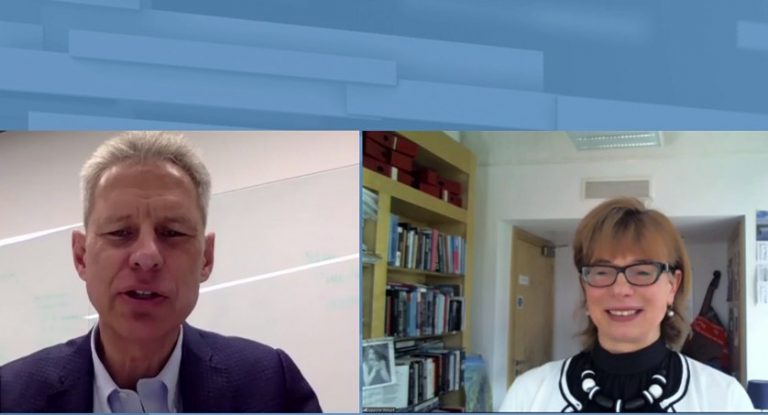
The real reasons for the invasion, the historical origins of the former Russian Empire and Ukraine’s role, as well as the…Vladimir Putin’s… obsession was the main theme that the discussion between Financial Times editor in chief Yuri Bender and Kataryna Wolczuk, associate fellow of Chatham House, professor of East European Politics (CREES), University of Birmingham in the thematic discussion on Ukraine at the first OT Forum.
As Mrs. Wolczuk explained, 16 years have passed since Ukraine applied to join NATO, without then receiving a clear answer. In fact, given that some countries such as Italy had expressed objections, the issue had gradually become inactive to finally return only now, after the Russian invasion.
In any case, NATO leaders wanted to send a clear message that there is no question of admitting the country, which is why Kiev’s request to enforce a no-fly zone was not accepted.
The issue that differentiates the Ukrainian regime from the question of Russia’s intentions is that for Moscow it seems to be a matter of national identity.
The Kremlin’s narrative has gradually changed in recent years in the direction of presenting Ukraine, and not just as part of Russia’s identity, but as an integral part of Russia. This is something that frightens other countries in the region, such as Poland.
The bottom line is that Ukraine seems to have become an obsession with Vladimir Putin.
Regarding the discussion on the revival of the Dnieper kingdom, we see that the Dnieper line that divides Ukraine in half seems to have been moved to the east, ie close to the current border between the two states. This also shows Moscow’s intention to include Donbass, Mariupol, the Black Sea and the Sea of Azov in its plans for integration.
However Ukraine has has undergone a transformation, having resisted the other side’s aggression and the Russian invasion, and has managed to hold on.
Fluid objectives
In this context, Moscow’s goals seem fluid. It certainly needs and seeks to create at least one corridor for Crimea, conquering Mariupol and the territories east of the Dnieper, but the failure of the military offensive forced it to fold. The narrative is changing, as seen from the talks in Istanbul, and we see the Russian side again focusing on securing territories in the Russian-speaking areas of Donbas.
In this light, President Putin, according to Mrs. Wolczuk, appears as a Sultan of an Ottoman Empire who wants to subjugate other regions. However, the Ukrainian people themselves do not agree, they resist and those who disagree are presented as… Nazis.
The propaganda of de-Nazification
Indeed, the rhetoric of de-Naziization of Ukraine has become the spearhead of Moscow’s campaign to explain the war to Russian public opinion. People are not sure they understand why this war is taking place. But Russian propaganda is very effective and coordinated around the narrative of de-Nazification.
In this landscape, the role of the oligarchs is certainly important, but it is different on every side. In Russia, Putin does not seem to want to involve them in politics, he wants to keep them focused on business. However, these oligarchs are financing and supporting the Russian economy, so they are helping to finance the war, and that is why they have been targeted by Western sanctions. However, there is a difference: In Russia, it is the Kremlin that controls the oligarchs, while in Ukraine, on the other hand, the local oligarchs are heavily involved in the political scene and influence it.
Latest News

DM Dendias: We talk With Turkey But We Always Bring Up Their Unacceptable Positions
Second and last day of closely watched conference, entitled 'Metapolitefsi 1974-2024: 50 Years of Greek Foreign Policy', also included appearances by PM Mitsotakis, Ex-PM Tsipras and PASOK leader Nikos Androulakis, among others

Rhodes Airport Tops Fraport Greece’s Regional Airports in 2024 Performance
According to Fraport's data, more than 35 million passengers (specifically 35.2 million) were handled by Fraport-managed airports during the 11 months.

European Central Bank Cuts Interest Rates by 25 Basis Points
It is the fourth cut of interest rates by Europe’s central bank, a move expected by the markets and financial analysts leading to the rate settling at 3%.

Airbnb: New Measures Add €600 in Extra Costs for Property Owners
Property managers face an immediate administrative fine of 5,000 euros if access to the inspected property is denied or any of the specified requirements are not met.

Economist: Greece Included in the Best Performing Economies in 2024
Meanwhile, Northern European countries disappoint, with sluggish performances from the United Kingdom and Germany.

EasyJet Expands Its Routes from Athens
The airline’s two new routes will be to London Luton and Alicante and they will commence in summer 2025.

Capital Link Forum Highlights Greece’s Economic Resurgence; Honors BoG Gov Stournaras
Capital Link Hellenic Leadership Award recipient, Bank of Greece Gov. Yannis Stournaras, an ex-FinMin, was lauded for his pivotal role during Greece’s economic recovery

Tourist Spending in Greece Up by 14%, Visa Card Analysis Shows
Greece’s capital Athens emerged as the most popular destination, recording a 17% increase in transactions with Visa cards, surpassing even the cosmopolitan island of Mykonos.

Inflation in Greece Unchanged at 2.4% in Nov. 2024
The general consumer price index (CPI) posted a 0.4% decrease in November compared to the previous month

2024 Christmas Holidays: Extended Shop Hours Schedule
The 2024 Christmas Holidays extended shop hours schedule commences on Thursday, December 12 and runs until the end of the year.



![Φυσικό αέριο: Δυναμικό come back του LNG στην Ελλάδα [γραφήματα]](https://www.ot.gr/wp-content/uploads/2023/01/OT_naturalgas-90x90.jpeg)











![Fraport: Πάνω από 35 εκατ. επιβάτες στα αεροδρόμια το 11μηνο – Πτώση στη Μύκονο [πίνακας]](https://www.ot.gr/wp-content/uploads/2022/06/fraport-90x90.jpg)










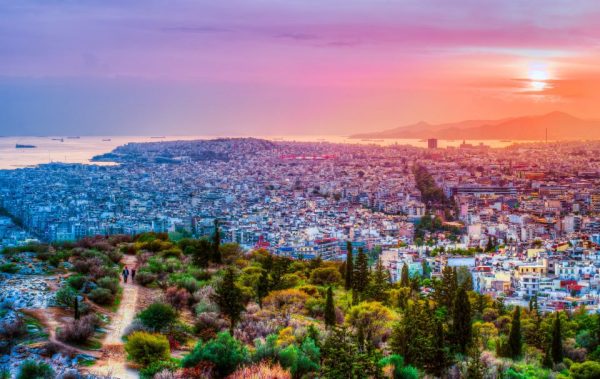
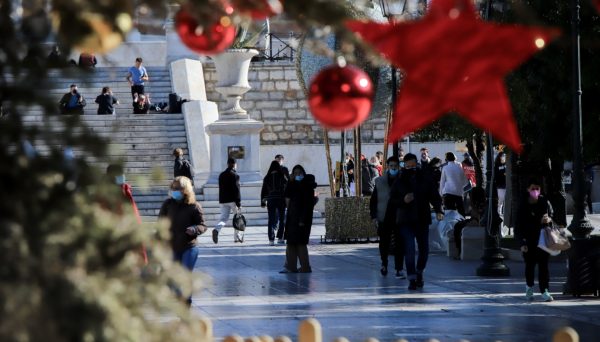




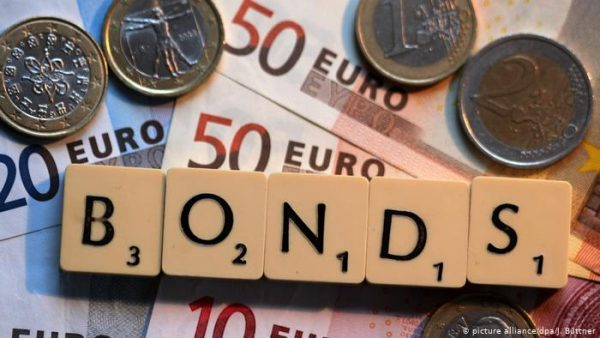
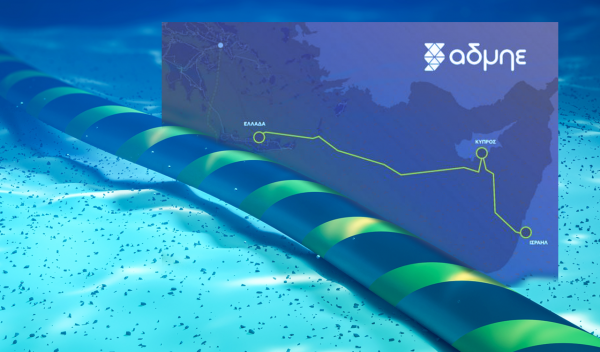








 Αριθμός Πιστοποίησης Μ.Η.Τ.232433
Αριθμός Πιστοποίησης Μ.Η.Τ.232433